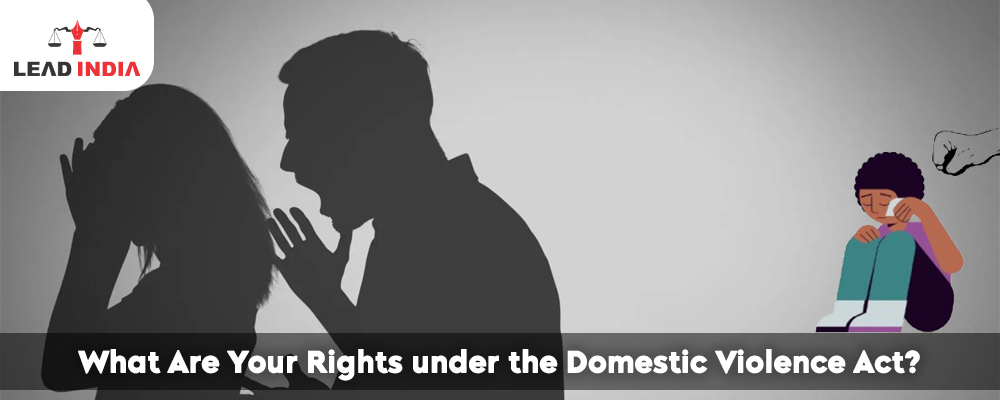Domestic Violence now encompasses emotional, mental, economic, and other forms of brutality, in addition to physical acts. Domestic violence refers to acts that endanger the victim’s health, safety, life, limb, or well-being, including physical, sexual, verbal, emotional, and economic abuse, committed by anyone in a domestic relationship with them.
The Act also addresses domestic abuse perpetrated by male and female relatives of the spouse or male partner. The Domestic Violence Protection Act of 2005 protects women from all sorts of violence and discrimination against India’s patriarchal mindset. Under the Act, one can request protection orders by notifying protection officers. Additionally, by applying, one can seek government duties. The aggrieved person can also seek medical attention or counseling. In addition, the victim can be promised separate dwelling or maintenance orders.
Reasons For Domestic Violence
- Women in low-income households are more vulnerable to domestic abuse due to their financial dependence on their partners. Thus, poverty is a critical element that drives domestic violence.
- Men often use violence to preserve their control over relationships. Women are often considered inferior to men. Domestic violence in India is often attributed to the patriarchal nature of the country.
- The offense of domestic violence is not dealt with by criminal laws in its entirety. There is no specific criminal law providing the punishment, especially for domestic violence.
Need A Legal Advice
The internet is not a lawyer and neither are you. Talk to a real lawyer about your legal issue

The Objective Of Domestic Violence Act
There are several objectives of the DV Act but the foremost aim is to curb the offense of domestic violence against women. Let us discuss the objective of the Act in detail:
- The Act provides for the rights of victims in cases of domestic violence. It provides various kinds of protection to the victim.
- The Act aims to serve justice in a timely and cost-effective manner.
- It even imposes harsh punishment upon the offender. The harsh punishment helps in decreasing the crime rate.
- This Act even makes the provision for creating awareness among people about this Act.
Rights Provided Under The Domestic Violence Act
Protection Order: The magistrate has the power to pass a protection order to prevent the respondent from committing any further domestic violence, or from contacting the aggrieved woman. The magistrate will pass this order after being satisfy that the respondent has commit the offense of domestic violence.
The protection order includes the order prohibiting the respondent from entering the place of employment of the aggrieved person, attempting to communicate with the aggrieved woman, causing violence to the relatives of the aggrieved woman, etc. Breach of a protection order or interim order by the respondent is an offense punishable by imprisonment for up to one year, a fine of up to 20,000 rupees, or both.
Residence Order: The magistrate under this Act may pass a residence order restraining the respondent from dispossessing the aggrieved person from the shared household. The magistrate may pass several orders, such as directing the respondent to remove himself from the shared household or restraining the respondent from renouncing his rights in the shared household.
Monetary Relief: Financial assistance for women may cover medical expenses, lost earnings, property damage, and other costs. If a woman suffers economic losses due to abuse, the court can mandate monetary compensation. The abused party may also seek support from their male partner. Suppose the respondent fails to pay the monetary order.
In that case, the Magistrate may direct the respondent’s employer or debtor to pay the aggrieved person or deposit a portion of the respondent’s wages or debts with the court. This amount can be adjust towards the respondent’s monetary relief. The clause requires adequate, fair, and reasonable monetary relief that aligns with the injured individual’s standard of living.
Custody Order: During a hearing for a protection order or other relief under this Act, the Magistrate may grant temporary custody of a child or children to the aggrieved party or their representative. The Magistrate may also arrange for the respondent to visit the child or children if necessary. The Magistrate may grant interim custody of the children to the aggrieved woman or anybody applying on her behalf. This is done to prevent a mother from being separate from her children, which is abusive in itself. If the Magistrate considers the respondent’s visit may harm the child or children, they may reject the contact.
Compensation Order: On an aggrieved person’s application, the Magistrate may order the respondent to pay compensation and damages for injuries caused by domestic abuse, including mental torture and emotional pain.
Domestic Violence goes unreported for various reasons, including embarrassment, financial dependency, and victim blaming. It is not surprising that many women opt to stay in abusive marriages. Domestic Violence is pervasive across the country, despite its lack of visibility. It is prevalent in all types of societies, regardless of economic class, education level, age, or other socioeconomic aspects.
For any legal help, contact Lead India. We offer free online legal consultation and other legal services. On our platform, you can talk to lawyers. You can freely ask any legal question. We provide the solutions to your legal problems.





 Talk to a Lawyer
Talk to a Lawyer